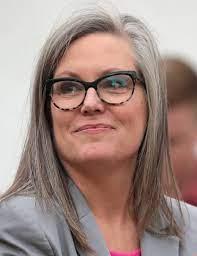Livingston Keeps The Heat On Hobbs With AZ AG Complaint

By Daniel Stefanski
On Wednesday, Representative David Livingston filed a complaint and request for investigation with Arizona Attorney General Kris Mayes, regarding Governor Katie Hobbs' use of state resources to influence elections pursuant to state statutes. This action from Livingston follows an earlier attempt from the legislator to obtain a legal opinion on "whether Arizona law allows a Governor-Elect to fundraise for political entities that make expenditures to influence elections through a state website promoting inaugural events." In this latest effort, Representative Livingston revealed that Attorney General Mayes had "declined to provide a legal opinion, stating there were factual questions that made the issue inappropriate for a legal opinion."
Livingston released the following statement in conjunction with his announcement: “State law prohibits using public resources, including websites, to influence elections. As the Attorney General has already acknowledged, there are unanswered factual questions here that warrant an immediate and thorough investigation. If Governor Hobbs had simply transferred the leftover funds to the state protocol account like former Governors have done, it would not be necessary to file my complaint. But the Governor’s unprecedented actions and refusal to provide information to me about where the funds went, who controls the funds, and how the funds will be spent left me with no choice. As the state’s chief legal officer charged with investigating potential violations of Title 16, the Attorney General must scrutinize these transactions and seek judicial relief if necessary to remedy past violations and prevent future violations of state law.”
The state lawmaker argues that the Arizona Attorney General’s Office “is empowered to investigate potential violations of Title 16,” pointing out that “Mayes invoked this authority earlier this year when she filed an unsuccessful lawsuit against Cochise County, citing concerns that without taking legal action, the Cochise County Board of Supervisors might hide actions that should be done publicly in compliance with Arizona’s open meeting law.”



























